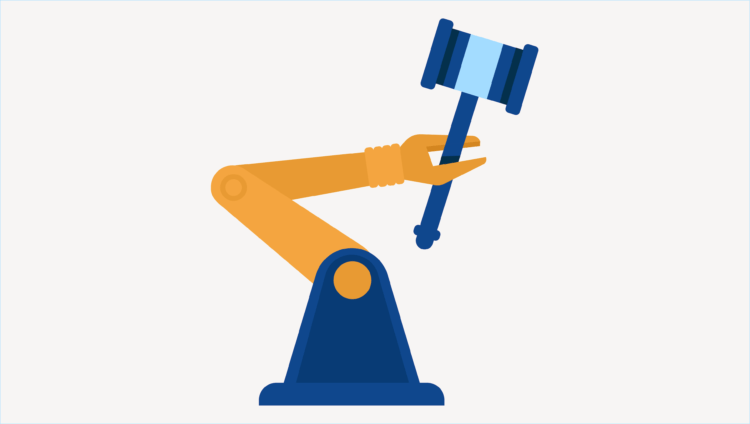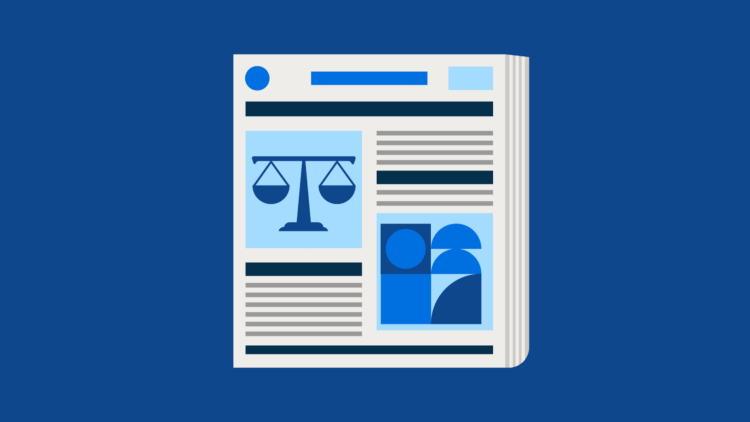What’s holding your firm back from exploring the opportunities that artificial intelligence (AI) offers? For many lawyers, it’s fears about whether their bar association approves of AI.
According to the 2024 Legal Trends for Mid-Sized Law Firms report, 31% of lawyers in mid-sized firms and 19% of lawyers in smaller firms believe that their bar association would never approve of law firms using AI-powered software.
Despite this attitude among lawyers, we know now that several states have, in fact, begun approving AI ethics opinions concerning AI use in the legal profession (the most recent examples at the time of writing being California and Florida). Additionally, no bar association has stated that they will never approve of law firms using AI tools.
Whether your state bar has released an AI ethics opinion or has yet to do so, lawyers should take the time to familiarize themselves with how bar associations are approaching AI regulation, generally. Below, we’ll provide a brief overview of Florida’s recent AI ethics opinion, along with some tips for staying on top of AI usage in your law firm.
What the Florida Bar’s AI ethics opinion suggests for lawyer AI use
The Florida Bar released its advisory AI ethics opinion, Opinion 24-1, on January 24, 2024, which covers ethics surrounding AI use.
Essentially, Opinion 24-1 confirms that lawyers can use AI when practicing law. However, when using AI, lawyers must prioritize client confidentiality, practice accurately and competently, steer clear of unethical billing methods, and comply with lawyer advertising restrictions. We’ll discuss each of these topics in a little more detail below.
Note that Opinion 24-1 is not meant to be a comprehensive list of AI-related issues (nor are the following paragraphs meant to be a comprehensive summary of Opinion 24-1!). Lawyers must therefore exercise common sense when using AI tools at all stages of legal practice.
Prioritizing client confidentiality
Lawyers who use generative AI have a duty to protect their client’s confidential information, including educating themselves on the tool’s policies on data handling, sharing, and self-learning. However, lawyers do not need to obtain their client’s consent to use AI in relation to their case unless they need to disclose confidential client information to do so.
Practicing accurately and competently
At the end of the day, lawyers are responsible for their work—regardless of whether an AI tool is involved. To that end, lawyers must review AI work products to ensure they are accurate and sufficient for their clients’ purposes. Furthermore, Opinion 24-1 confirms that lawyers may not delegate any tasks to AI tools that could constitute the practice of law (for example, negotiating a settlement).
Steering clear of unethical billing methods
Lawyers may save time on routine legal tasks by using AI; however, they must bill honestly and accurately and avoid unethical billing practices such as double billing or inflated billing. Lawyers must also notify clients if they intend to charge them for the use of AI tools.
Complying with lawyer advertising restrictions
Lawyers must exercise caution when using AI to assist with advertising and intake—namely, where the use of AI chatbots is concerned. Lawyers must ensure that prospective clients are aware they are communicating with AI (and not a real lawyer) and are responsible for any issues arising due to the information provided by the chatbot (e.g., where a chatbot provides misleading information to a prospective client).

Have other state bar associations released AI ethics opinions?
Florida isn’t the only state bar to have provided an AI ethics opinion. As of the date of publication, five state bar associations (Michigan, California, Florida, Pennsylvania, and New Jersey) have issued guidance on AI use in the legal profession, with more undoubtedly coming down the pipe imminently.
You may like these posts
What should I do if my state has not issued an AI ethics opinion?
Even if your bar association has not yet issued an AI ethics opinion, it’s prudent to follow the guidance being provided by Florida and the bar associations noted above. For the most part, the recommendations made by these bar associations are broad (and, frankly, common-sensical) enough to be relevant regardless of your jurisdiction’s specific rules.
Consider also revisiting your state bar association’s rules of professional conduct to confirm whether any AI-related activities you plan to implement in your law firm may be at odds with current directives and other AI ethical considerations. For example, many state bar associations offer ethics opinions on cloud computing that may provide some insights applicable to the use of artificial intelligence.
AI ethics opinions and your legal practice
Despite concerns among lawyers that bar associations will never approve of AI use, it appears that the opposite is true: bar associations are beginning to release AI ethics opinions outlining how lawyers can implement AI in their firms while continuing to meet their professional obligations.
Begin by familiarizing yourself with your bar association’s ethics opinion (or, if your bar hasn’t yet issued its own opinion, familiarizing yourself with the bar associations noted above) and revisiting your state bar association’s rules of professional conduct. Then, start thinking about how you can support your coworkers and colleagues in understanding how AI should be used in your firm. This could involve working on an AI use policy for your law firm, developing an AI committee, or even hosting a “lunch and learn” (or two) to ensure your team is safely leveraging AI.
And, if you’re just diving into the world of legal AI, check out Clio Duo—Clio’s forthcoming proprietary AI technology, designed specifically for law firms and built on our platform-wide principle of protecting sensitive legal data.
We published this blog post in May 2024. Last updated: .
Categorized in: Technology






